Are you seeking a healthier and more sustainable way to enjoy your gardening efforts? When it comes to selecting tomatoes, non-GMO heirloom varieties offer a unique blend of flavor, nutrition, and environmental benefits that make them a standout choice. Often misunderstood, non-GMO heirloom tomatoes are not only free from harmful genetic modifications but also rich in antioxidants and other beneficial nutrients. With their vibrant colors and deep flavors, these tomatoes are a perfect addition to any kitchen garden or dish. Whether you’re a seasoned gardener or just starting out, this guide will walk you through the essential aspects of choosing non-GMO heirloom tomatoes, helping you make informed decisions that prioritize your health and the planet.
Key Takeaways
– Heirloom Tomatoes May Not Be Organic: While many heirloom tomatoes are grown organically, they are not inherently organic. Always check labels or ask growers about farming practices.
– Nutrient-Rich and Healthier Option: Heirloom tomatoes are packed with vitamins, minerals, and antioxidants, making them a nutrient-dense choice for a balanced diet.
– Verify Non-GMO Status: Look for certifications like USDA Organic or Non-GMO Project labels to ensure heirloom tomatoes are free from genetically modified organisms.
– Buy Local or Certified Organic: Purchasing from local farmers or markets often guarantees fresher, organic heirloom tomatoes, while certified labels assure non-GMO status.
– Store and Use Properly: Keep heirloom tomatoes fresh by storing them in a cool, dry place, and consider slicing and marinating them for added flavor and convenience.
Are Heirloom Tomatoes Non-GMO?
Heirloom tomatoes are typically non-GMO (Genetically Modified Organisms), as they are naturally occurring varieties that have not been subjected to genetic modification. However, it’s important to note that while most heirloom tomatoes are non-GMO, some may still be hybridized to a certain extent depending on the specific variety and breeding history.
What Are Heirloom Tomatoes?
Heirloom tomatoes are old, open-pollinated varieties that have been passed down through generations. Unlike hybrid tomatoes, which are created through controlled crosses to achieve specific traits, heirloom tomatoes have been grown naturally for decades without genetic modification.
Why the Question Matters
The question arises because heirloom tomatoes are often compared to hybrid varieties, which are genetically modified to some degree. While hybrid tomatoes may offer advantages like disease resistance and higher yields, they can also be treated with synthetic chemicals during growth, which some consumers prefer to avoid.
Treatment Differences
Heirloom tomatoes are generally grown without the use of synthetic pesticides and fertilizers, making them a popular choice for organic gardens. However, this can vary depending on the specific growing practices of the farmer or gardener.
Common Concerns
One common concern with heirloom tomatoes is their susceptibility to pests and diseases due to their lack of hybridization for pest resistance. However, this can be mitigated through organic farming practices and careful selection of varieties suited to your climate.
Verification Tips
If you are concerned about the specific variety of heirloom tomato you are growing or purchasing, you can verify its non-GMO status by checking the seed source or certifications, if available. Many heirloom seeds are sold by reputable organizations that adhere to strict non-GMO standards.
Learn more about heirloom gardening and sustainable agriculture to explore the benefits of growing these natural, non-GMO varieties.
Understanding Non-GMO Heirloom Seeds
A non-GMO heirloom refers to seeds that are both non-genetically modified (non-GMO) and heirloom. These seeds are typically traditional or heritage varieties that have been passed down through generations, preserving their unique characteristics and natural traits.
Non-GMO heirloom seeds are cultivated without the use of genetic modification, meaning they have not been altered through laboratory techniques. This distinction is important for those seeking to avoid consuming or grow plants that may have been genetically engineered.
Heirloom seeds are often cherished for their resilience, flavor, and adaptability to specific regions. They are usually open-pollinated, relying on natural pollinators like bees and wind rather than human intervention or hybridization.
When selecting non-GMO heirloom seeds, it’s essential to consider their care requirements, as they may vary from hybrid or genetically modified varieties. Proper planting, watering, and maintenance are crucial for maximizing yield and ensuring successful growth.
For gardeners and farmers alike, non-GMO heirloom seeds offer a sustainable and natural alternative to modern, genetically modified crops. They contribute to biodiversity and preserve agricultural traditions, making them a valuable choice for eco-conscious individuals.
Do Heirloom Tomatoes Have Pesticides?
Heirloom tomatoes do not inherently have pesticides. However, whether they contain pesticides depends on how they are cultivated. While heirloom tomatoes are often associated with organic gardening, they are not guaranteed to be free of pesticides. Conventional heirloom tomatoes may still be treated with pesticides if the grower chooses to do so.
Factors Influencing Pesticide Use
- Growing Methods: Heirloom tomatoes can be grown conventionally or organically. Organic heirlooms are less likely to have pesticides, while conventional ones may.
- Regional Growing Practices: Different regions may use varying levels of pesticides based on local pest pressures and farming practices.
- Regulatory Standards: Some heirlooms may meet organic standards, while others may not. Always check certification labels if you’re concerned about pesticide use.
Comparison to Hybrid Tomatoes
Hybrid tomatoes, which are a different category from heirlooms, are often bred for disease resistance and higher yields. This can sometimes reduce the need for pesticides compared to heirlooms, which are more vulnerable to pests due to their open-pollinated nature.
Sourcing Heirloom Tomatoes
When purchasing heirloom tomatoes, consider where they are sourced. heirlooms from small-scale, locally-focused farms are less likely to have been treated with synthetic pesticides compared to those from large industrial operations.
Checking for Pesticides
If you’re concerned about pesticide use, look for signs of chemical treatment, such as visible sprays or residue. Many heirlooms are sold at farmers’ markets or through CSA programs, giving you direct access to grower information.
Organic vs. Conventional Heirlooms
Organic heirlooms are grown without synthetic pesticides, herbicides, or fungicides. While they may have lower yields and require more manual care, they offer a cleaner, healthier option for those concerned about pesticide exposure.
OldSeed.org provides valuable resources on heirloom tomato cultivation and sustainable farming practices. Learn more about the benefits of heirloom tomatoes and how to grow them effectively.
Are Heirloom Tomatoes Always Organic?
Heirloom tomatoes are not inherently organic, but many varieties are grown organically due to their popularity among health-conscious consumers. Here’s a breakdown of the relationship between heirloom tomatoes and organic practices:
What Are Heirloom Tomatoes?
Heirloom tomatoes are open-pollinated varieties that have been passed down through generations of gardeners. Unlike hybrid tomatoes, which are bred for disease resistance and uniformity, heirlooms focus on flavor, texture, and heritage. They come in a wide range of colors, sizes, and shapes, each with unique characteristics.
Organic vs. Heirloom
While heirloom tomatoes are often associated with organic farming, the terms are not mutually exclusive. A tomato can be heirloom without being organic, as organic certification depends on farming practices such as composting, avoiding synthetic pesticides, and not using genetically modified organisms (GMOs).
Factors Influencing Organic Status
Many heirloom tomatoes are grown organically because small-scale farmers and home gardeners value their taste and nutritional value. However, commercial growers may use conventional methods, making it important for consumers to check labels or ask growers about practices.
Certifications and Labels
If you’re seeking organic heirloom tomatoes, look for certifications like the USDA Organic seal. Some heirlooms may be labeled as “organic” if they meet these standards, though not all heirlooms are necessarily certified.
Tips for Buying Heirloom Tomatoes
When purchasing heirloom tomatoes, consider:- Source: Buy from local farmers or markets for fresher, often organic options.- Labels: Check for organic certification or grower statements.- Sustainability: Support farms that prioritize eco-friendly practices.
Conclusion
Heirloom tomatoes are a delicious and nutritious choice, but they are not always organic. By understanding the differences and checking for certifications, you can make informed decisions that align with your values.
For more information on heirloom tomatoes and sustainable gardening practices, explore our gardening guides and sustainable agriculture resources .
Are Heirloom Tomatoes the Healthiest?
Heirloom tomatoes are often hailed as a superfood due to their high nutrient density and unique health benefits. While they may not be the sole healthiest option, their numerous advantages make them a valuable addition to a balanced diet. Below are key reasons why heirloom tomatoes stand out:
- Nutrient-Rich: Heirloom tomatoes are packed with essential vitamins, minerals, and antioxidants. Their vibrant colors indicate a variety of phytonutrients that help combat oxidative stress and support overall health.
- High Vitamin Content: These tomatoes are particularly rich in vitamins A, C, and K, along with potassium and folate, contributing to immune function and blood health.
- Fiber-Rich: Heirloom tomatoes offer significant dietary fiber, aiding digestion and promoting gut health. This fiber can also help regulate blood sugar levels.
- Antioxidant Properties: The diverse range of antioxidants found in heirloom tomatoes helps protect cells from damage, potentially reducing the risk of chronic diseases.
- Low Calorie and Low Glycemic Index: Compared to many other fruits, heirloom tomatoes are low in calories and have a lower glycemic index, making them a great choice for those managing blood sugar levels.
While heirloom tomatoes are highly nutritious, it’s important to consider them as part of a varied diet. Other healthful options like berries, leafy greens, and whole grains also contribute to overall wellness. For example, blueberries and kale are renowned for their antioxidant properties, and incorporating a mix of these foods can maximize nutritional benefits.
Choosing and Storing Heirloom Tomatoes
When selecting heirloom tomatoes, look for firm, uniform fruits with bright colors and no signs of spoilage. Store them in a cool, dry place for optimal freshness, and enjoy them fresh for the best taste and nutrition.
Quick Tip: Enhance Flavor
For added convenience, try slicing heirloom tomatoes and marinating them in olive oil, balsamic vinegar, and herbs before serving as a healthy snack or salad topping.
By embracing heirloom tomatoes and integrating them into your diet, you can enjoy their unique health benefits while supporting sustainable farming practices. Remember, a balanced diet combining various nutrient-rich foods is the best approach to overall health.
How to Identify GMO Tomatoes
To determine whether tomatoes are genetically modified (GMO), follow these steps:
- Check Product Labels : Look for labels indicating the presence of genetically modified organisms (GMOs). In many regions, including the U.S., foods containing GMOs must be labeled as such.
- Review Ingredient Lists : Examine the ingredient list for words like “tomato paste” or “tomato powder,” which may indicate the use of GMO tomatoes.
- Certifications : Seek products certified by organizations like the Non-GMO Project or USDA Organic, which guarantee no GMO content.
- Manufacturer Statements : Check the product description for claims about being GMO-free or non-GMO.
- Regulatory Compliance : Understand local regulations regarding GMO labeling, such as those in the EU, which mandate clear disclosure of GMO content.
- Third-Party Testing : Some companies provide independent lab test results verifying the absence of GMOs.
- Avoid Processed Foods : Opt for fresh tomatoes, as processed products may use extracts from GMO sources.
By systematically applying these methods, you can effectively identify whether tomatoes are GMO.

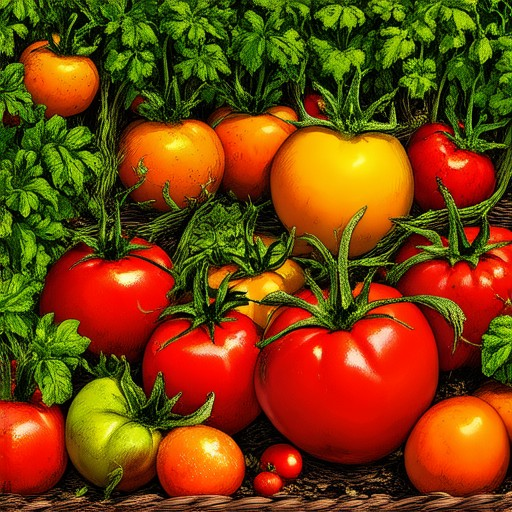
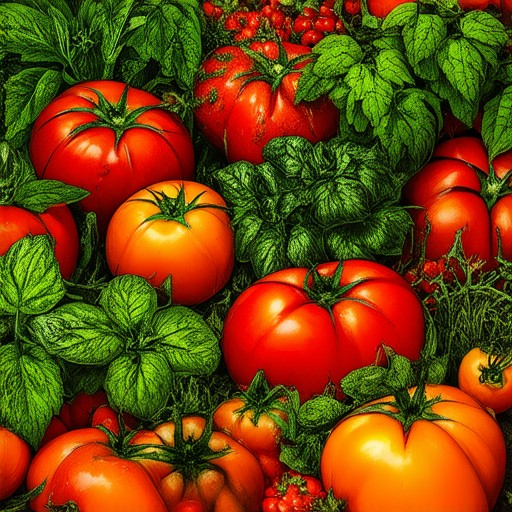
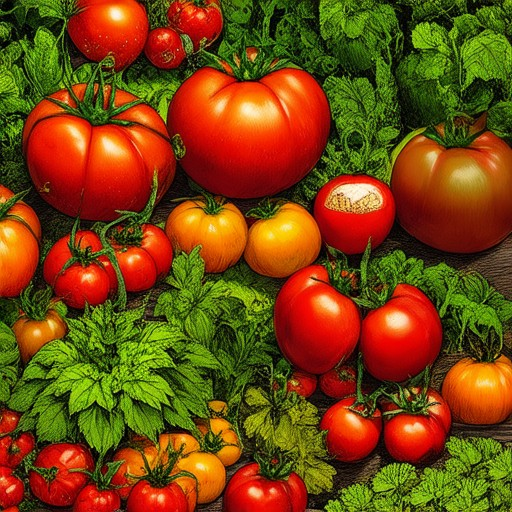
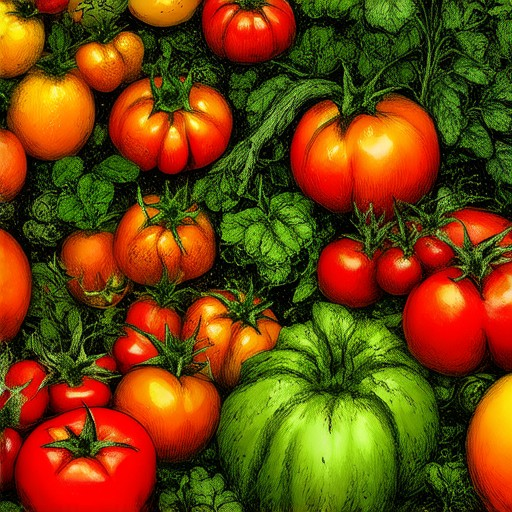
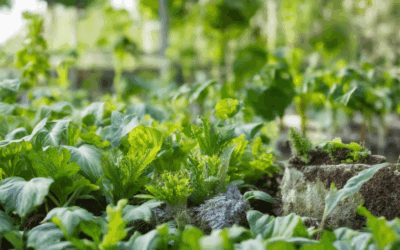
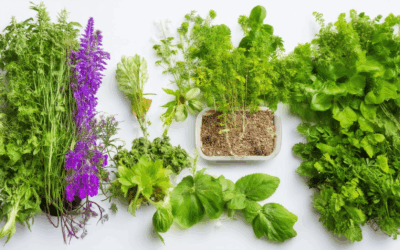
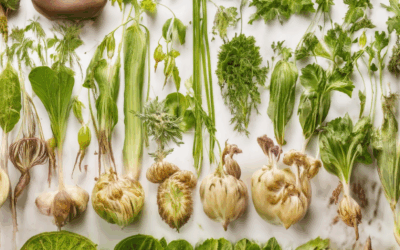
0 Comments